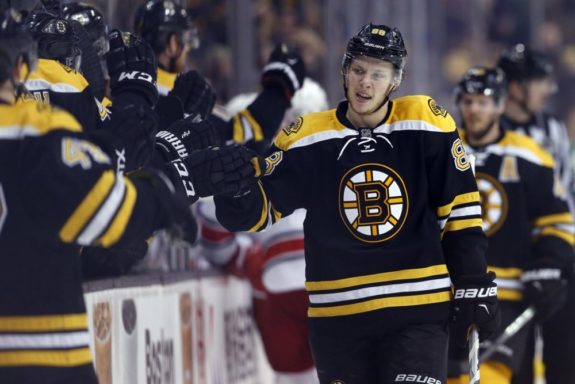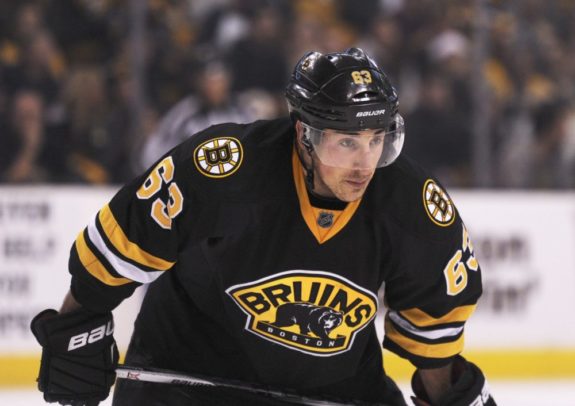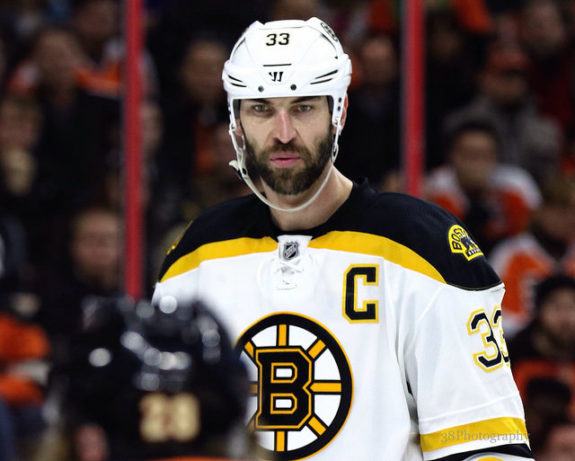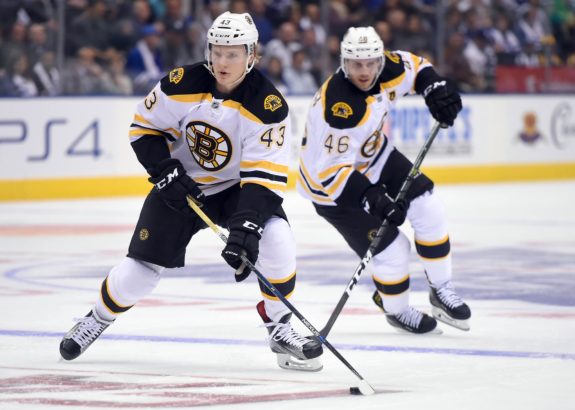Going into the 2017-18 season, the Boston Bruins were a mystery. General Manager Don Sweeney did little in the offseason to improve a team that struggled from the blue line and with secondary scoring. He opted instead to keep roster spots open for promising young prospects. Additionally, key players who were already well into, or past, their primes were now another year older. Needless to say, the Bruins entered this season with a lot of important questions. Now that the season has taken shape, we can begin to answer them.
Will David Pastrnak Live up to His Contract?
It seems silly now, but when Sweeney locked up Pastrnak to a six-year, $40 million deal, there was some trepidation. In his first two seasons in the NHL, he flashed some elite skills but never put it all together until last season. The argument was that his one good season was not enough to justify a long-term investment.

Well, you can put your worries to bed. Pastrnak has been everything Sweeney paid for. He leads the team with 33 points, and he’s tied with Brad Marchand for the lead in goals. A midseason outcry against his frequent turnovers has been the only hiccup so far.
However, as his consistent scoring shines through, the gripes about his turnovers have subsided. He’s put up 16 points in his last 17 games dating back to November 22. At only 21 years old, he’s been great, and his $6.67 million cap hit looks like a steal.
Can Brad Marchand Repeat 2016-17?
Marchand’s evolution as a player has been as impressive as it’s been atypical. He’s turned himself from a fourth-line pest into a depth scorer, then an elite scorer, then an elite all-around player. However, it was fair to ask if his 46-assist outburst last season, an 18-assist jump from his previous career-high, was sustainable. It was, after all, the first season in which his assist total had outpaced his goal scoring.
Again, the early returns look good. Marchand’s 0.61 assists per game in his first 28 games this season are actually better than the 0.58 assists he averaged last season. Despite missing seven games to upper-body injuries (assumed to be concussions), his 15 goals put him on pace to hit the 40-goal mark for the first time in his career.

Alongside Pastrnak and Patrice Bergeron, Marchand helps to make up the most dangerous two-way line in the NHL. It’s hard to believe that Boston has them each locked up for under $7 million per year.
Is Zdeno Chara Done?
The short and easy answer to this is that he’s got more in the tank. Between David Ortiz, Tom Brady, and Chara, Boston has been blessed with some of the best age-defying athletes of our time. While Brady and Ortiz are like fine wines or possibly extra-terrestrial cyborgs, Chara is like an old, reliable pickup truck. He’s not as flashy as he once was, but he’s still perfectly useful when it comes to his designed purpose.
He hasn’t cracked the 40-point mark since 2013-14, and he may never even reach 30 points again. Furthermore, turnovers have been an issue his entire career, and he still has trouble pushing the puck up the ice. However, he’s still an elite defensive-zone player and remains one of the most important penalty killers in the NHL.
His fitness level remains on par with that of an Olympic athlete. His 23:29 average ice time ranks 30th in the league, while his 3:40 of shorthanded ice time per game ranks 4th. They aren’t empty minutes either. He’s maintained a 51.5% Corsi-for percentage while starting only 47.5% of his shifts in the offensive zone.

Chara’s most important role, however, may be his mentorship. The captain spent last year guiding 20-year-old Brandon Carlo through his NHL apprenticeship. This season, he’s helped to turn 20-year-old Charlie McAvoy into a future star. The Bruins and Chara have expressed mutual interest in renewing his contract for next season. If the money is right, there’s no reason why he shouldn’t be back.
Are the Rookies Ready to Step In?
McAvoy, Jake DeBrusk and Anders Bjork entered the season with the highest expectations of any crop of rookies in recent memory. Not only have they been great, but one could argue that McAvoy, DeBrusk and fellow rookie Danton Heinen have far exceeded their lofty expectations. Bjork has struggled both to put pucks on net and to find the scoresheet, but that’s typical of NHL rookies. His colleagues, on the other hand, have been otherworldly.
McAvoy’s regular-season debut was highly anticipated due to his impressive playoff showing last season. He showed early in the season that the optimism for his offensive game was well warranted, but his defensive play was inconsistent. Now, questions about his future as a number-one defenseman have subsided. He’s been incredible in all three zones. He’s averaged over half a point per game while playing a solid, physical game in his own zone.
The one knock on McAvoy is that he doesn’t shoot the puck enough. When he does put shots on net, good things tend to happen. His two shootout game-winners don’t show up on the stat sheet, but they highlight what an immensely skilled player he is.
Heinen has been perhaps the most overlooked rookie in the NHL. Despite playing mostly on Boston’s third line, he’s managed to amass 26 points in 32 games while sporting some impressive possession metrics. He’s third on the team in points, and adds the depth that last year’s team so sorely lacked.

DeBrusk has been similarly impressive. He’s tallied 12 points over his last 15 games. He’s also putting plenty of shots on net. Although he’s missed four games due to injury, he still sits third on the team with 77 shots.
What Can the Bruins Achieve in 2017-18?
By the very nature of existing in Boston, the Bruins have built-in expectations. The realists, however, had pegged this season’s team as one that may, at best, repeat its first-round exit from the 2017 Stanley Cup Playoffs. Optimists hoped that if all went well, the team could possibly win a playoff series or two.
Few believed that with no significant additions, the punchless team from last season could contend for the Cup. Now, you’d be hard-pressed to find anybody counting this team out after 35 games.